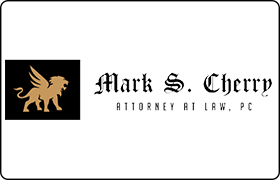Camden County, NJ Bankruptcy & Debt Lawyers, page 4
Sponsored Law Firm
-
 x
x

Click For More Info:
-
Mark Cherry Law
385 Kings Highway North Suite 101 Cherry Hill, NJ 08034» view mapBankruptcy & Debt Where Every Client Matters
We want our clients to be confident and secure knowing we are a law firm ready to take on the fight and challenge with them.
800-824-6431
Edward P Epstein
Divorce & Family Law, Accident & Injury, Collection, Banking & Finance
Status: In Good Standing Licensed: 47 Years
Joseph McCormick
Foreclosure, Lawsuit & Dispute, Divorce & Family Law, Bankruptcy
Status: In Good Standing
Michael Berman
Credit & Debt, DUI-DWI, Trusts, Construction, Criminal
Status: In Good Standing Licensed: 33 Years
 Mark Cherry Cherry Hill, NJ
Mark Cherry Cherry Hill, NJ AboutMark Cherry Law
AboutMark Cherry Law Practice AreasSpecializations
Practice AreasSpecializations
